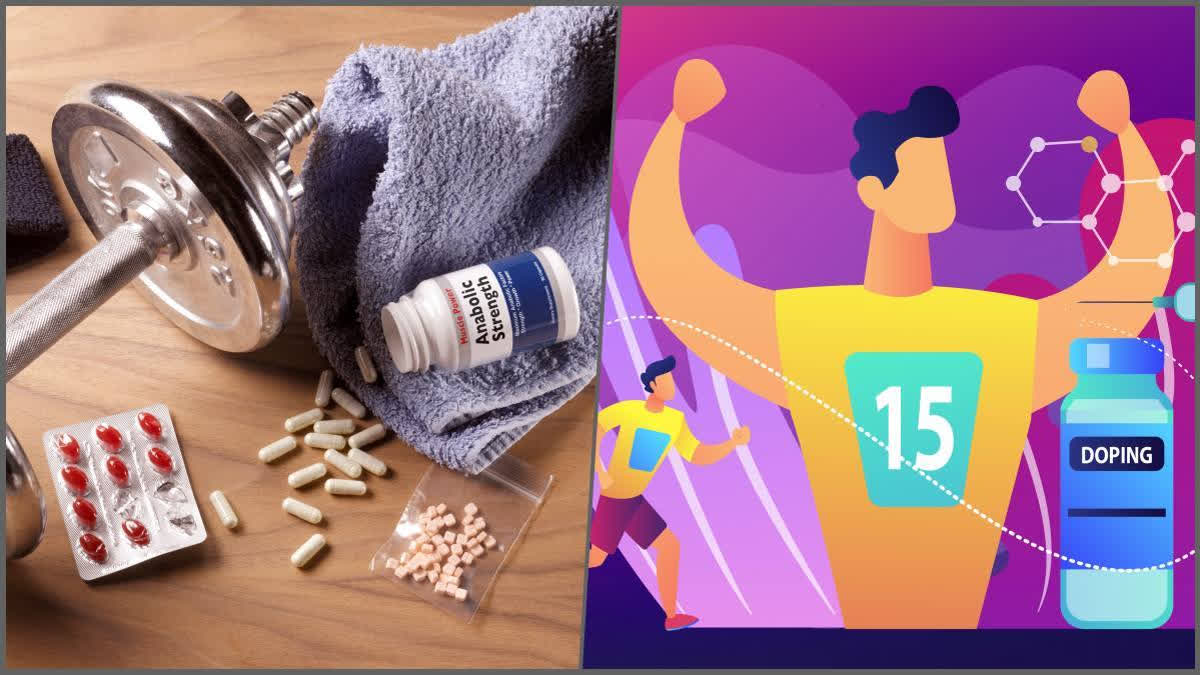Hyderabad: Play True Day is celebrated annually on April 19, is a key event in the calendar of the World Anti-Doping Agency (WADA) and the global anti-doping community.
The day highlights the importance of fair play in sports and promotes the fight against doping worldwide. The event was inspired by an Education Conference held in 2013 with 17 South American countries in attendance.
Now, athletes, sports federations, national and regional anti-doping organisations, and major event organisers come together to mark the day and uphold the values of clean sports.
What is Doping? Doping involves the use of banned substances in competitive sports to enhance performance. These performance-enhancing drugs (PEDs) are used by athletes to gain an unfair advantage, thereby devaluing the spirit of competition.
The Dangers of Doping: Doping poses significant risks to athletes' health, including:
- Cardiovascular Issues: Irregular heart rhythm, elevated blood pressure, heart attacks, and sudden death.
- Central Nervous System Problems: Restlessness, anxiety, aggression, suicidal thoughts, psychosis, and stroke.
- Respiratory Issues: Nose bleeds and sinusitis.
- Hormonal Imbalances: Conditions like acromegaly, reduced sex drive, infertility, and cancer.
- Anti-Doping Programs and Violations: Anti-doping programs aim to protect athletes' rights to compete in doping-free sports. WADA oversees a global anti-doping program that encompasses sports organisations committed to upholding the WADA Code. This code establishes anti-doping policies, rules, and regulations across various sports organisations worldwide, including the International Olympic and Paralympic Committees, Olympic Sports International Federations, and National Olympic and Paralympic Committees.
National anti-doping organisations, such as the United States Anti-Doping Agency (USADA), are responsible for implementing WADA laws on a daily basis.
Penalties for Doping Violations: Athletes subject to the WADA code may undergo random testing both during and outside competition. Testing can involve urine or blood samples and varies based on the sport's history of doping, type of sport, and the substances being tested.
Penalties for doping violations also differ across sports, ranging from a two-year suspension for a first offence to a lifelong ban for a second offence. Major sports leagues have their own penalties, such as four-game suspensions in the NFL and twenty-game suspensions in the NHL.
India Leads in Doping Offences: According to WADA's 2022 testing figures, India tops the list of countries with the highest percentage of doping offenders. Out of 4,064 samples collected from Indian athletes, 127 tested positive for banned substances, constituting 3.26% of the sample size.
Russia's International Sports Ban: In 2019, WADA banned Russia from international sports competitions for four years due to a state-sponsored doping scheme.
Athletics' Medals Lost Due to Doping: Since November 1905, 159 medals have been stripped from athletes due to doping violations, with nine medals left vacant. Improved drug testing methods have led to the majority of these cases since 2000.
Notable Doping Scandals in Sports
1967: Tom Simpson's Death in Tour de France- British cyclist Tom Simpson died during the Tour de France due to heart failure caused by dehydration. Traces of amphetamines were found in his system, leading to a ban on performance-enhancing drugs in cycling.
1970s-80s: East German Government Forces Athletes to Use Steroids- The East German government systematically administered steroids to its athletes in the 1970s and 1980s, leading to notable success in sports and subsequent lifelong health problems for the athletes.
1988: Ben Johnson Tests Positive for Steroids: Canadian track star Ben Johnson won gold in the 100m at the Seoul Olympics but was later stripped of his medal after testing positive for stanozolol.
1994: Diego Maradona's Ephedrine Use- Diego Maradona tested positive for ephedrine at the 1994 World Cup, ending his career in international soccer.
1998: Festina Cycling Team Doping Scandal- The Festina cycling team was expelled from the 1998 Tour de France after their masseur was caught transporting performance-enhancing drugs.
2003: The BALCO Scandal- The BALCO scandal involved the use of designer steroids by athletes across different sports, including track star Marion Jones and baseball player Barry Bonds.
2012: Lance Armstrong's Tour de France Titles Stripped- Lance Armstrong was stripped of his seven Tour de France titles in 2012 due to his involvement in a sophisticated doping program.
2013: Biogenesis Scandal in MLB- The Biogenesis scandal revealed the use of performance-enhancing drugs in Major League Baseball, leading to suspensions for several players, including Alex Rodriguez.
2021 and 2022: Russia's Olympic Ban- Russia faced a ban from the Olympics and world championship sporting events due to state-sponsored doping, impacting the country's athletes.



